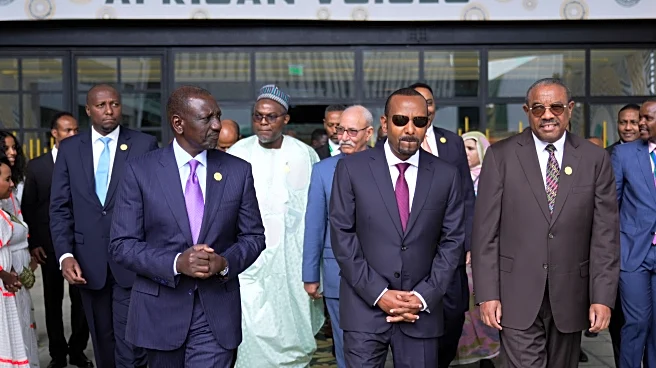ADDIS ABABA, Ethiopia (AP) — African leaders met Monday in the Ethiopian capital for the second Africa Climate Summit, where they proposed a new way of thinking about climate adaptation funding and called
for the continent to be viewed not as a victim, but as an investment opportunity.
With a population of more than one billion, African countries have been hit hardest by climate disasters such as droughts and floods, which have made millions of people vulnerable. In 2023, at the inaugural summit in Kenya, African leaders made ambitious plans to increase renewable energy, but funding constraints have slowed implementation.
This year’s summit aims to unlock climate financing and accelerate Africa-led solutions and adaptation.
It is “time to replace climate aid with climate investment," Ethiopian Prime Minister Abiy Ahmed said during the summit's opening ceremony, which was attended by heads of state from African nations as well as business leaders, climate scientists, activists and other stakeholders.
Amos Wemanya, a climate action campaigner with Greenpeace Africa, said the climate adaptation funding gap can be met by taxing polluters.
"We need to tax the polluters and the super-rich to generate the resources needed to make them pay for the climate plunder they are causing the continent,” he said.
Mahamoud Ali Youssouf, the chairperson of the African Union — a continental body of 55 member states and a co-host of the summit — proposed a framework of “climate justice” to help vulnerable countries grappling with the dual challenges of climate change and debt.
The summit declaration, which will outline Africa’s priorities and proposed solutions, is expected to be finalized this week, during the three-day gathering. It will then be presented at COP30 in November. COP30 president, Ambassador André Corrêa do Lago, attended the Africa summit and expressed his solidarity.
Ethiopia, the host of this year's summit, will inaugurate the Grand Ethiopian Renaissance Dam project along the Blue Nile on Tuesday. It is expected to produce more than 5,000 megawatts, doubling Ethiopia’s current output, part of which will be exported to neighboring countries.
In July, the country launched a national campaign to plant 700 million trees in one day as part of an ambitious conservation initiative that aims to plant 50 billion trees by 2026.
____
AP’s Africa coverage at: https://apnews.com/hub/africa









